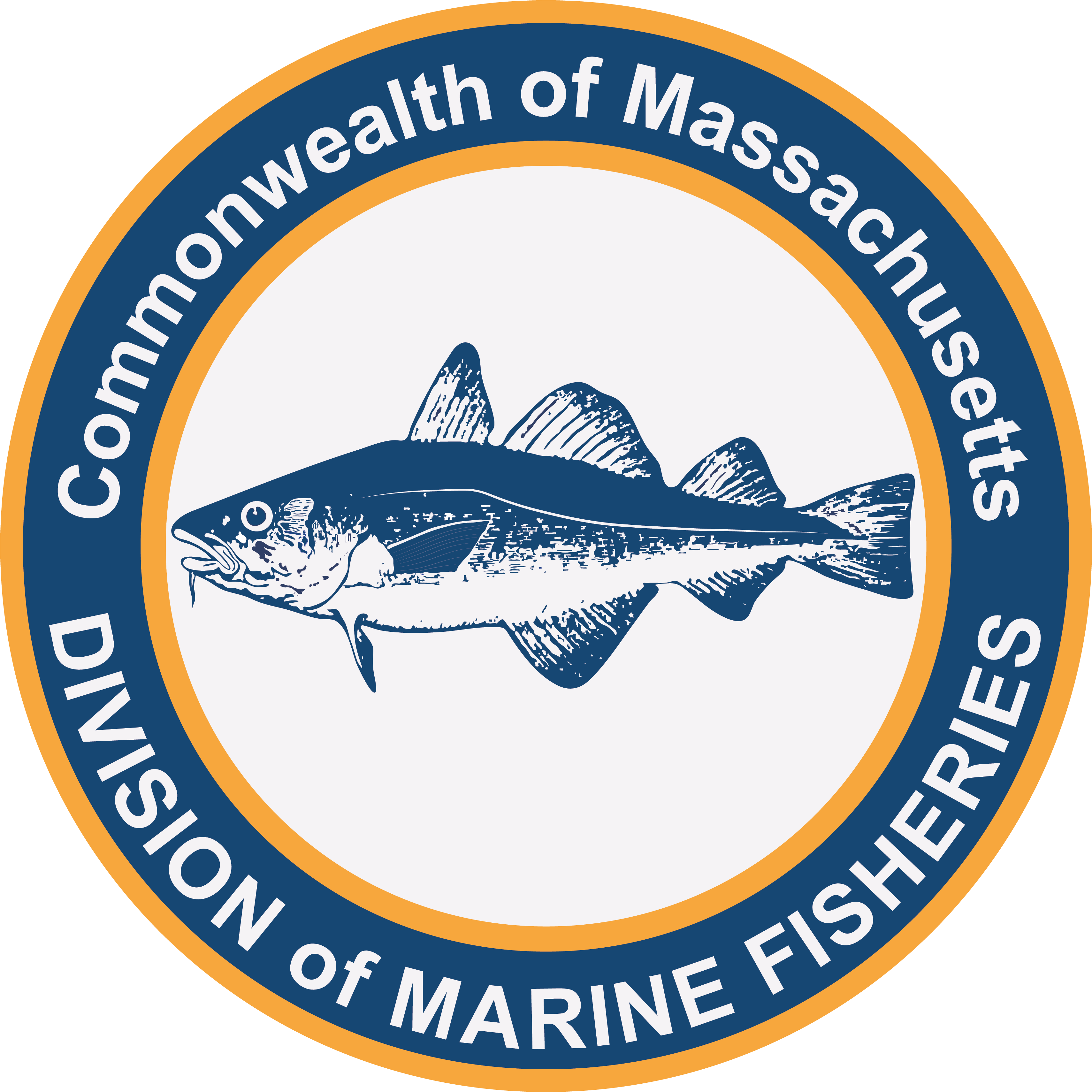- Division of Marine Fisheries
Thus far, 2024 has been a mixed bag for the North Atlantic right whale population with some setbacks in protection and recovery, as well as bright spots in conservation efforts. Here in Massachusetts, we had another successful right whale season through collaborations with the Center for Coastal Studies, the Massachusetts Environmental Police, trap fishermen, and other researchers. DMF worked with environmental law enforcement and contracted commercial fishermen to ensure the seasonal trap gear closure in the Massachusetts Restricted Area (MRA) was free of derelict fishing gear prior to the arrival of right whales. This seasonal closure is a critical conservation tool to ensure right whales are protected from entanglement when they aggregate each winter and spring in Cape Cod Bay, the Outer Cape, Massachusetts Bay, and the North Shore. In 2024, we conducted 18 recovery trips and removed 373 traps and 193 buoy lines from state waters portions of the MRA.
Right whales returned once again in strong numbers to Massachusetts waters in winter and spring 2024, although at slightly lower levels than recent years. Approximately 47% of the known population (n=168 individuals) was observed in Cape Cod Bay (CCB) and Mass Bay over the course of the season, which is the fewest individuals observed since 2015. A season high of 88 individual right whales was documented in CCB on March 13. While the large aggregations we’re used to seeing didn’t show up this year, a handful of right whales lingered past May 1, causing the MRA closure to be extended until May 8.
Although the right whale population continues to be impacted by entanglement and vessel strikes, the population decline that began in 2010 appears to have slowed in recent years, with reductions in mortality and improved calving. As of 2022, there were approximately 356 individual right whales in the known population. 2024 got off to a rough start for right whales, however. Although 20 new calves were documented in the 2024 calving season, four are missing and presumed dead, and one died of injuries from a vessel strike off South Carolina. Five of the surviving 15 calves were seen in Cape Cod Bay in 2024. In addition to the calf deaths, two right whale females were killed by vessels—one off Georgia in February and another off Virginia in April. The latter was a calving female in the 2024 season and her calf is among the missing and presumed dead. Another right whale was found dead off Martha’s Vineyard in January, which necropsy and gear analysis determined was caused by a chronic entanglement in Maine state lobster gear.
Additional protections for right whales are currently paused due to Congress’ passage of the Consolidated Appropriations Act 2023, which stated that the current Atlantic Large Whale Take Reduction Plan is sufficient to meet the mandates of the Marine Mammal Protection Act and Endangered Species Act until December 31, 2028. This raised questions about NOAA Fisheries' ability to expand the MRA to close an area in Massachusetts Bay known as 'The Wedge', a narrow zone left open between the state waters closure line and the western portion of the federal closure covering Stellwagen Bank, which it had done by emergency action in 2022 and 2023. In March 2024, NOAA Fisheries published a final rule permanently adding the Wedge to the seasonal MRA closure. However, six days later a judge in the US District Court of Massachusetts ruled that the Consolidated Appropriations Act barred the Wedge rule until December 31, 2028, making the rule void and unenforceable. NOAA Fisheries is reviewing the decision and considering other options for protecting right whales in this important seasonal habitat.
In 2024, DMF continued to support the testing of ropeless or on-demand fishing gear by collaborating with the Northeast Fisheries Science Center (NEFSC) on trials of ropeless systems under their Exempted Fishing Permit. The permit allows the testing of alternatives to traditional buoy lines in the seasonal trap closure areas, however authorization from DMF is required to test ropeless gear in the state waters portion of those closures. During the 2024 closure season, NEFSC worked with six commercial fishermen in state and federal waters portions of the MRA and the South Islands Restricted Area to test fully ropeless systems and collect data on the functionality of the gear, catch rates, hauling efficiency, gear proximity, and potential gear conflict issues. During this testing, DMF and NEFSC observers collected data on timing elements of hauling for inclusion in DMF’s on-demand economic impacts model.
The Consolidated Appropriations Act 2023 also provided funding to States for right whale monitoring, gear innovation research, and assistance for fishermen to comply with the regulations of the Atlantic Large Whale Take Reduction Plan. DMF is using the funds provided to Massachusetts to expand right whale aerial surveillance, develop a right whale acoustic monitoring network, conduct on-demand gear research, and provide assistance to fishermen to comply with weak rope and buoy line marking requirements.
By Erin Burke, Protected Species Specialist
